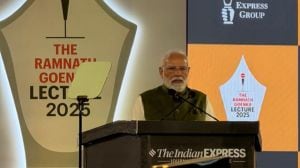Aviation ministry not keen on 74% FDI in domestic airlines
Reluctance on the part of the civil aviation ministry is likely to scuttle the finance ministry's plans to raise the FDI cap in domestic airlines to 74% from 49% at present.
Reluctance on the part of the civil aviation ministry is likely to scuttle the finance ministry’s plans to raise the FDI cap in domestic airlines to 74% from 49% at present.
While a panel headed by department of economic affairs secretary Arvind Mayaram has recommended that the sectoral FDI cap for domestic airlines be raised to 74%,the civil aviation ministry is not keen on the proposal as it has not received any such request from the industry and also because a number of changes in the regulations and policies would be required to implement such a proposal.
Apart from changes in the civil aviation regulations,to raise the cap to 74%,we would also need to shift towards an ‘open skies’ policy and that would take a lot of time, said a senior aviation ministry official. We have not yet received any request from the industry to raise the cap,so we are not sure how this would help the industry. We are not keen on raising the FDI cap immediately.
The aviation ministry has a week to send its views on the proposal to the Department of Industrial Policy and Promotion (DIPP).
‘Open skies’ agreements are typically signed between two countries or regions. Such agreements give unrestricted rights for airlines of the signatory countries or regions to operate flights. Currently,India has an open skies agreement only with the US and a partial open skies agreement with the UK.
A successful example of an open skies agreement is the one between the EU and the US,where airlines have unrestricted rights to operate between the EU and the US based on market demand. The Asean region has also been moving to an open skies regime in a phased manner since 2008.
Indian carriers are given entitlements to fly to other countries after the government signs bilateral air services agreements. Under the bilateral air services agreements regime,the flight entitlements are restricted by the number of seats per week and the number of cities.
Such agreements also hamper majority foreign ownership of airlines as Indian flight entitlements are restricted to Indian-owned airlines.
Apart from the bilaterals,there would also be a need to amend the current civil aviation requirements. As per current rules,domestic airlines need to have a substantial Indian ownership and effective control.
While the Mayaram recommendations allow for majority ownership and control of domestic airlines by foreign carriers,they stop short of giving foreign carriers 100% ownership. By keeping 26% in the hands of Indian owners,the government seeks to give Indian partners the right to block special resolutions of the board and have a say in the decision-making of airlines.
Although no such request has been made to the aviation ministry,according the official quoted above,allowing foreign carriers majority control could open the floodgates and see some major carriers enter India.
German carrier Lufthansa has been scouting for a partner in South Asia to counter the growing influence of the Gulf carriers. The world’s third largest airline by capacity,Emirates,did not show interest in India as it has sought majority ownership and control of airlines after its bad experiences in the past.
The Gulf airline had to sell off its stake in the Sri Lankan national carrier for $53 million in 2010. Emirates had initially bought 40% of the then Air Lanka in 1998 for $70 million. The Dubai-based carrier ended a 10-year management agreement with Sri Lankan Airlines in 2008 when it valued its stake at $150 million. The contract was ended after a row over ticketing issues broke out between the then chief executive of Sri Lankan Airlines and the Sri Lankan government.
Last year,Emirates’ president Tim Clark said,Emirates won’t invest in Indian carriers unless the Indian government gives outside investors ultimate control.
The Mayaram panel also suggests permitting 100% foreign ownership of non-scheduled airlines and existing airports.
Foreign money coming into existing airports could help reduce user development fee at Delhi and Mumbai airports while 100% ownership of non-scheduled airlines could interest global travel agents to set up shop here and operate non-scheduled flights between smaller cities.





- 01
- 02
- 03
- 04
- 05


























